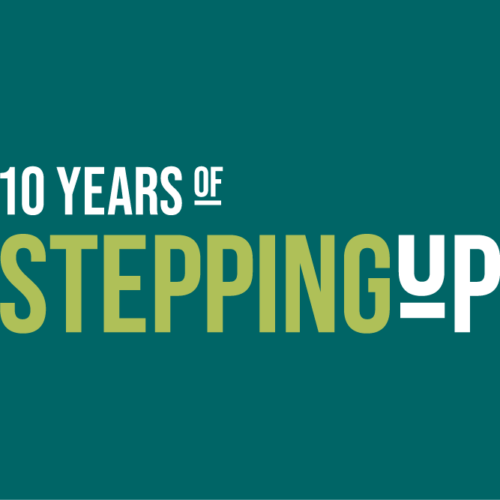
Three Counties Receive In-Depth Assistance to Improve Crisis and Diversion Strategies
The Justice and Mental Health Collaboration Program (JMHCP), administered by the U.S. Department of Justice’s Bureau of Justice Assistance with technical assistance from the CSG Justice Center, facilitates collaboration among the criminal justice, juvenile justice, and mental health and substance use treatment systems to better serve people with mental illnesses and increase public safety. Among the opportunities offered through JMHCP in 2021 was the chance for three jurisdictions to receive intensive support to better understand how people with mental illnesses flow through their local criminal justice systems.
Specifically, this support focused on identifying diversion and intervention strategies, particularly within law enforcement and crisis responses, to reduce the number of people with mental illnesses who are arrested and booked into jail. Of 84 jurisdictions that applied, the 3 local, cross-system teams selected were from Carlton County, Minnesota; Merrimack County, New Hampshire; and Tarrant County, Texas.
Over 14 months, CSG Justice Center staff worked with these county teams to analyze their criminal justice and behavioral health data, conduct focus groups to understand systems and processes, and provide recommendations about how to build upon existing local efforts. The CSG Justice Center’s analysis and recommendations for each county were guided by the principles of Stepping Up, a national initiative reducing the overincarceration of people with mental illnesses.
- The Carlton County, Minnesota, team worked with the CSG Justice Center to identify two primary goals for their technical assistance project: (1) expanding the local diversion system and (2) exploring funding opportunities to support that expansion using the Financing the Future of Local Initiatives tool. Key recommendations included data-driven solutions for expanding pre- and post-arrest diversion to reduce the number of people with mental illnesses booked into the county jail and strategies to improve data collection and funding sustainability. Additionally, the CSG Justice Center recommended that Carlton County re-engage with culturally specific services to facilitate connections to care at discharge for American Indian people who are booked into jail. Due to its efforts that were already in place to collect and apply baseline data on the jail population with mental illnesses, Carlton County was named a Stepping Up Innovator County during this process.
- The project in Merrimack County, New Hampshire, explored (1) streamlining the flow of individuals with serious mental illnesses (SMI) from mental health screening at jail booking to connections with community-based service providers upon release and (2) making data-driven decisions to reduce recidivism among individuals with SMI. Recommendations included expanding connections to the robust array of community-based treatment options for individuals with SMI released from jail, reforming probation in ways that can reduce recidivism for people with SMI, and using data to track progress.
- In collaboration with the CSG Justice Center, Tarrant County, Texas, identified two primary goals for their technical assistance project: (1) inventorying resources and analyzing processes at the front end of the criminal justice system and (2) sustainability planning. Recommendations included strategies to improve cross-system collaboration in a large urban area, options for expanding pre-arrest diversion to reduce the number of people with SMI booked into the local jail, and addressing disparities in jail bookings for Black people. Tarrant County is in the process of applying to be a Stepping Up Innovator and is a recent recipient of a JMHCP grant to improve case management for people assigned to mental health court and reentry services.
This type of specialized technical assistance is just one of the ways communities can receive support through JMHCP for system improvements at the intersection of criminal justice and behavioral health. Learn more about the opportunities and assistance offered through JMHCP.
Photo by Dan Formsma on Unsplash
About the author

The sharp rise in school shootings over the past 25 years has led school officials across the U.S.…
Read MoreA three-digit crisis line, 988, launched two years ago to supplement—not necessarily replace—911. Calling 988 simplifies access to…
Read MoreIt would hardly be controversial to expect an ambulance to arrive if someone called 911 for a physical…
Read More Taking the HEAT Out of Campus Crises: A Proactive Approach to College Safety
Taking the HEAT Out of Campus Crises: A Proactive Approach to College Safety
The sharp rise in school shootings over the past 25 years has…
Read More From 911 to 988: Salt Lake City’s Innovative Dispatch Diversion Program Gives More Crisis Options
From 911 to 988: Salt Lake City’s Innovative Dispatch Diversion Program Gives More Crisis Options
A three-digit crisis line, 988, launched two years ago to supplement—not necessarily…
Read More Matching Care to Need: 5 Facts on How to Improve Behavioral Health Crisis Response
Matching Care to Need: 5 Facts on How to Improve Behavioral Health Crisis Response
It would hardly be controversial to expect an ambulance to arrive if…
Read More The 10-Year Impact—and Future—of Stepping Up: Facing the Behavioral Health Crisis in Jails and Communities with Real Solutions
The 10-Year Impact—and Future—of Stepping Up: Facing the Behavioral Health Crisis in Jails and Communities with Real Solutions
As the Stepping Up initiative marks its 10th year, America’s justice and…
Read More A “Once in a Generation Opportunity” to Improve Reentry for Nearly 2 Million People
A “Once in a Generation Opportunity” to Improve Reentry for Nearly 2 Million People
19 states were recently granted permission by CMS to reimburse critical reentry…
Read More Local Criminal Justice System Innovations in Mental Health Services: Q&A with CSG Justice Center Advisory Board Member Dr. Doreen Williams
Local Criminal Justice System Innovations in Mental Health Services: Q&A with CSG Justice Center Advisory Board Member Dr. Doreen Williams
"It is the humane, person-centered approach that supports and stabilizes individuals, their…
Read More









